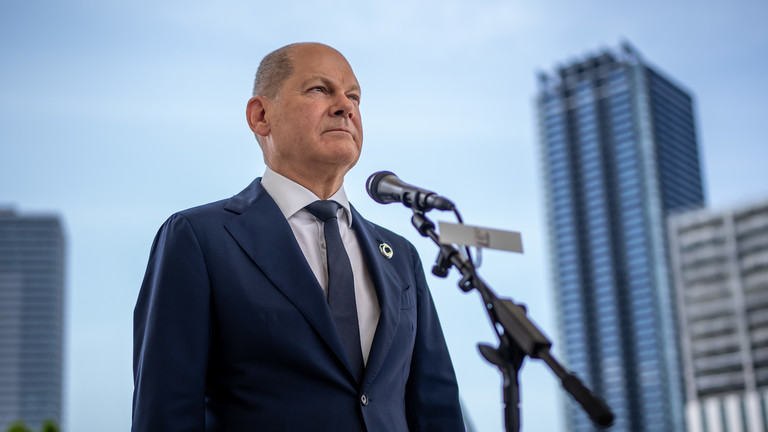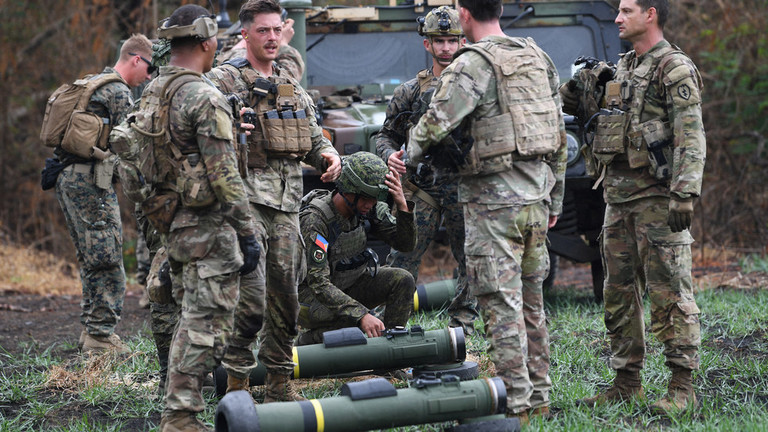KYIV, Ukraine (AP) — Ukrainian forces attacked Russia’s hold on the southern city of Kherson on Thursday while fighting also intensified in the country’s east. The battles came amid reports that Moscow-appointed authorities in Kherson have abandoned the city, joining tens of thousands of residents who fled to other Russia-held areas.
Ukrainian forces were surrounding Kherson from the west and attacking Russia’s foothold on the west bank of the Dnieper River, which divides the region and the country.
As the battles unfolded, Russian President Vladimir Putin sought to cast the conflict in Ukraine as part of efforts by the West to secure global domination.
Speaking at a conference of international policy experts, Putin accused the U.S. and its allies of trying to dictate their terms to other nations in a “dangerous and bloody” domination game.
Putin, who sent his troops into Ukraine on Feb. 24, has cast Western support for Ukraine as part of broad efforts by Washington and its allies to enforce what they call a rules-based world order that only foments chaos.
Meanwhile, Russia warned that Moscow could target Western commercial satellites used for military purposes in support of Ukraine, and a Foreign Ministry spokeswoman accused the United States of pursuing “thoughtless and mad” escalation.
Spokeswoman Maria Zakharova argued that Washington should take an approach more like it did during the Cuban Missile Crisis in 1962, when the Cold War superpowers stepped back from the brink of nuclear confrontation.
“The more the U.S. is drawn into supporting the Kyiv regime on the battlefield, the more they risk provoking a direct military confrontation between the biggest nuclear powers fraught with catastrophic consequences,” Zakharova said.
Ukraine has pushed ahead with an offensive to reclaim the Kherson region and its capital of the same name, which Russian forces captured during the first days of a war now in its ninth month.
More than 70,000 residents from the Kherson city area have evacuated in recent days, the region’s Kremlin-installed governor, Vladimir Saldo, said Thursday.
Members of the Russia-backed regional administration also fled, the deputy governor, Kirill Stremousov said. Monuments to Russian heroes were moved, along with the remains of Grigory Potemkin, the Russian general who founded Kherson in the 18th century. His remains were kept at the city’s St. Catherine’s Church.
Woman spends every night in a shelter in Mykolaiv
Faced with the trauma of relentless bombings, shelters have become second homes for some Ukrainians. (Oct. 26)
0 seconds of 2 minutes, 1 secondVolume 90%
In eastern Ukraine, Russian forces continued to bombard the city of Bakhmut in the Donetsk region, making slow gains toward the center.
The deputy head of Russia’s delegation at a U.N. arms control panel, Konstantin Vorontsov, described the use of U.S. and other Western commercial satellites for military purposes during the fighting as “extremely dangerous.”
“The quasi-civilian infrastructure could be a legitimate target for a retaliatory strike,” Vorontsov warned.
As they have all month, Russian forces carried out attacks on Ukraine’s energy infrastructure, which have caused increasing worry ahead of winter.
A Russian drone attack early Thursday hit an energy facility near the capital of Kyiv, causing a fire, said Kyiv regional Gov. Oleksiy Kuleba. He said the latest attacks inflicted “very serious damage.”
“The Russians are using drones and missiles to destroy Ukraine’s energy system ahead of the winter and terrorize civilians,” Kuleba said in televised remarks.
Kuleba announced new rolling blackouts and urged consumers to save power. He said authorities were still pondering how to restore power.
Kyrylo Tymoshenko, deputy head of Ukraine’s presidential office, said rolling blackouts would also be introduced in the neighboring Chernihiv, Cherkasy and Zhytomyr regions.
Ukrainian President Volodymyr Zelenskyy has said that Russian attacks have already destroyed 30% of the country’s energy infrastructure.
In a likely response to Russia’s attacks on Ukrainian infrastructure, a power plant was attacked just outside Sevastopol, a port in the Russian-annexed region of Crimea. The plant suffered minor damage in a drone attack, according to city leader Mikhail Razvozhayev. He said electricity supplies were uninterrupted.
Crimea, a region slightly larger than Sicily, was annexed by Russia from Ukraine in 2014. It has faced drone attacks and explosions amid the fighting in Ukraine. In a major setback for Russia, a powerful truck bomb blew up a section of a strategic bridge linking Crimea to Russia’s mainland on Oct. 8.
A senior Ukrainian military officer accused Russia of planning to stage explosions at the Zaporizhzhia Nuclear Power Plant and blame them on Ukraine in a false-flag attack.
Gen. Oleksii Gromov, the chief of the main operational department of the Ukrainian military’s general staff, pointed to Moscow’s repeated unfounded allegations that Ukraine was plotting to detonate a radioactive dirty bomb as a possible signal that Moscow was planning explosions at the plant, Europe’s largest nuclear power station.
Russia took control of the Zaporizhzhia plant in the opening days of the invasion. Russia and Ukraine have accused each other of attacking the plant, which had its reactors shut down following continuous shelling.
Gromov also charged Thursday that Russian forces may have staged explosions at residential buildings in the city of Kherson before retreating from the city “to inflict a critical damage to the infrastructure of the areas being reclaimed by Ukraine.”
The war in Ukraine and the resulting energy crisis is likely to cause global demand for fossil fuels to peak or flatten out, according to a report released Thursday by the Paris-based International Energy Agency, largely due to the fall in Russian exports.
“Today’s energy crisis is delivering a shock of unprecedented breadth and complexity,” the IEA said, releasing its annual report, the World Energy Outlook.
The report said this was forcing the world’s more advanced economies to accelerate structural changes toward renewable energy sources.

 NEWS2 months ago
NEWS2 months ago
 NEWS2 months ago
NEWS2 months ago
 NEWS2 months ago
NEWS2 months ago
 INVESTMENTS2 months ago
INVESTMENTS2 months ago
 FINANCE2 months ago
FINANCE2 months ago
 FINANCE2 months ago
FINANCE2 months ago
 WAR2 months ago
WAR2 months ago

























